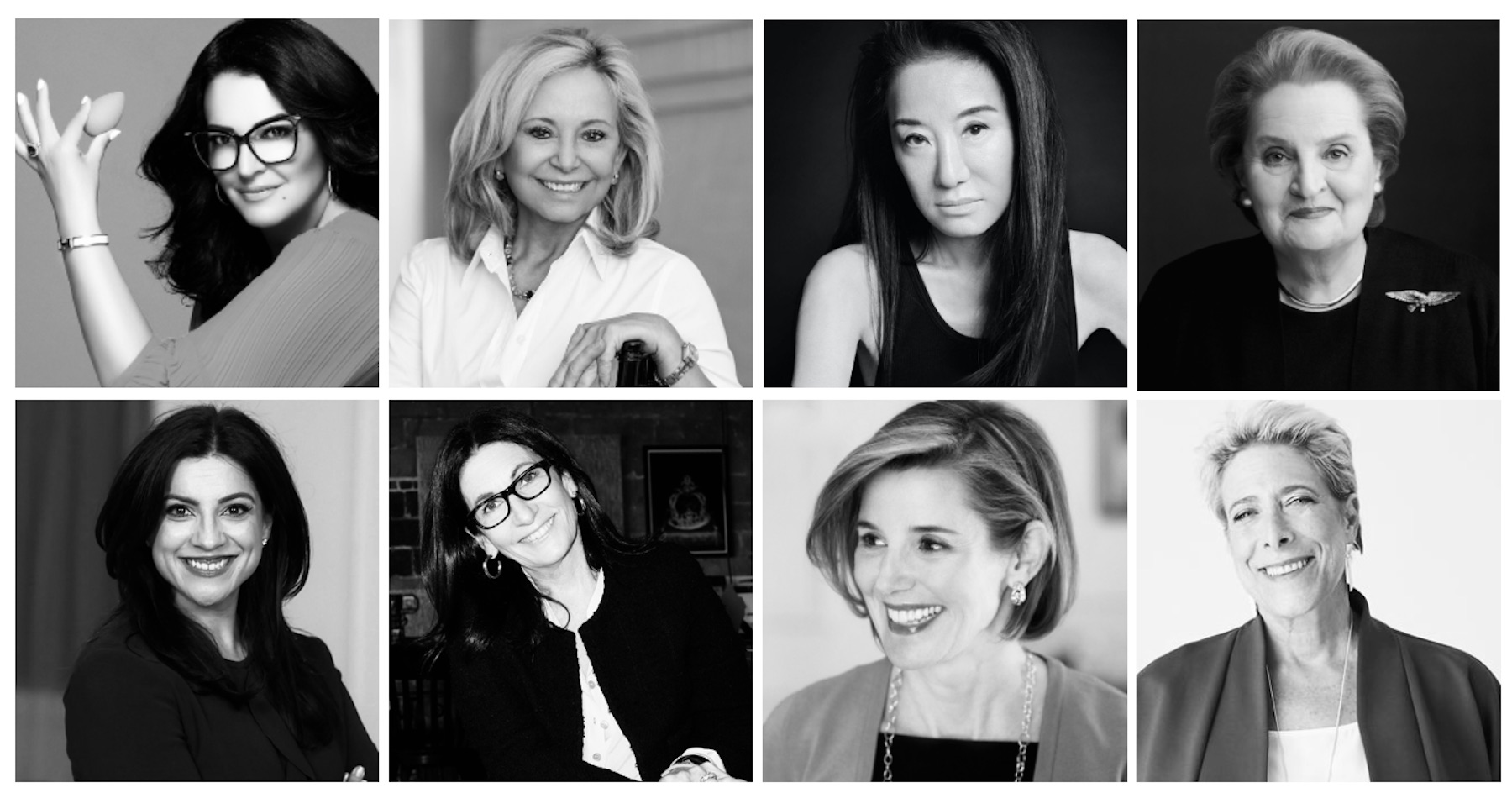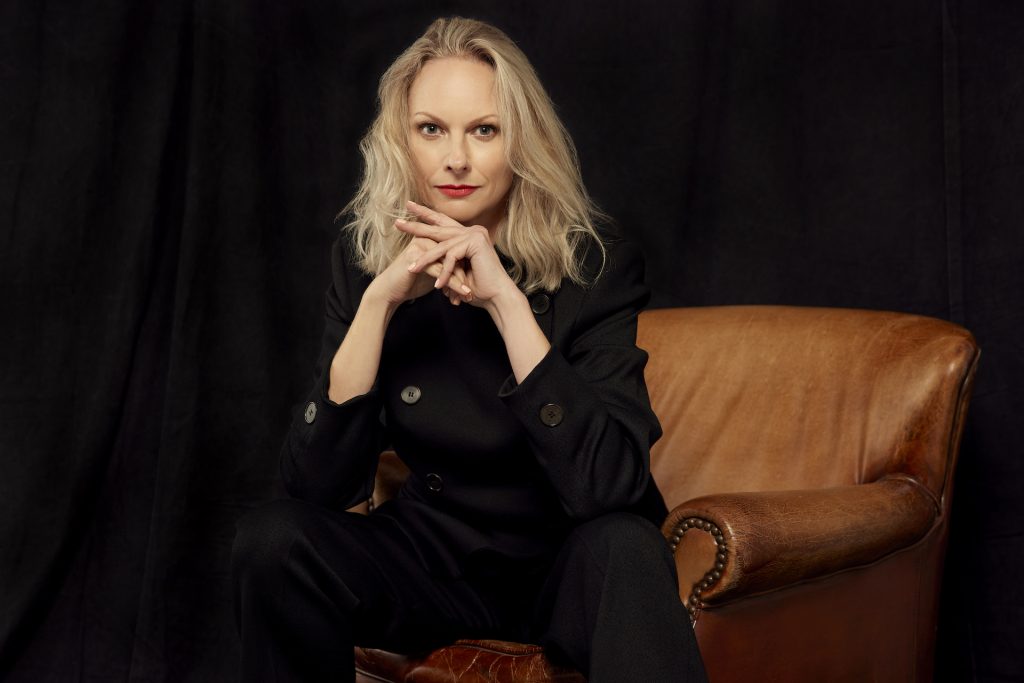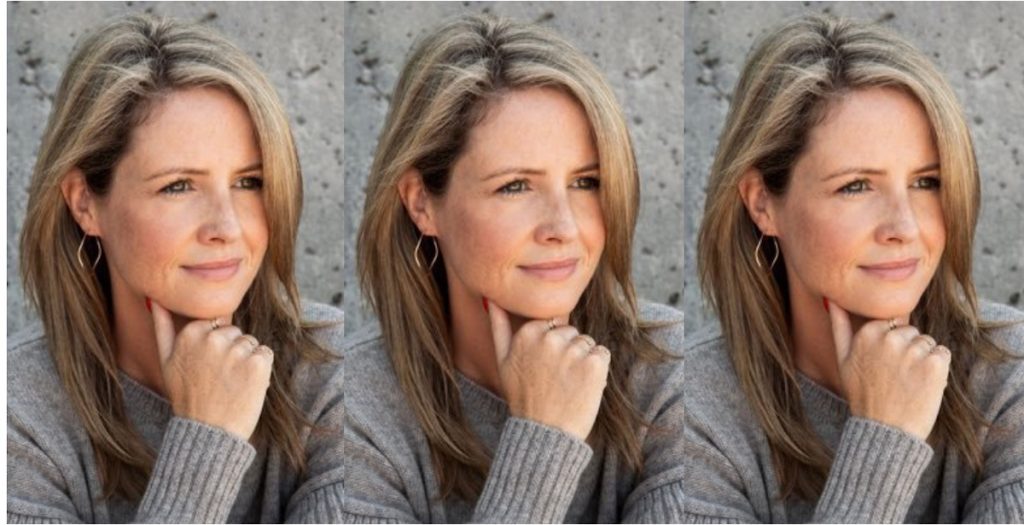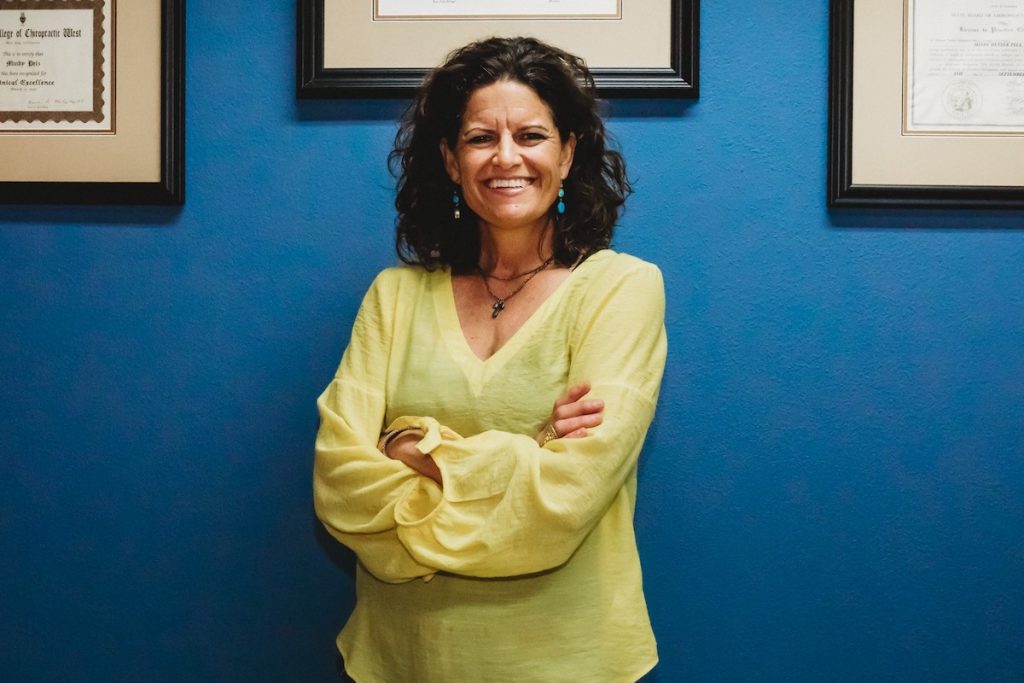So, what happens when you make it to age 30, 40 or 50 and realise you’re not happy? When you work your way up the career ladder only to realise, “I don’t want to do this anymore?” When a pandemic hits and you start to question everything and you think to yourself: is this what I really want?
The Great Resignation is coming
If these thoughts have been flooding your mind lately, know that you’re not alone, not by a long shot. Microsoft first coined the phrase ‘The Great Resignation’ earlier this year when research showed 40% of workers around the globe were ready to quit or change professions. From April to September, 24 million people resigned from their jobs in the US alone, with Germany, Japan and other wealthy nations also seeing shades of the same trend.
The reasons for this change are varied, but for some the pandemic has precipitated a shift in priorities, encouraging them to finally take the leap and pursue their dream career. The good news is it has never been a better time to start a business.
Why? “Because the playing field has been levelled,” says self-made businesswoman, producer and best-selling author, Bethenny Frankel. “Everything is upside down. This is when you find opportunities.”
Bigger risks for greater impact
Look around. There are now more than 252 million women entrepreneurs in the world. They’re taking bigger risks and making a greater impact. Not only are the investments that women made in relationships and community earlier in their careers starting to pay dividends, but other women are investing in them too.
Melinda French Gates’ investment company, Pivotal Venture, has invested in Female Founders Fund, a venture fund that wants to support women-founded businesses that traditional VCs would normally overlook. The fund raised US$57 million for its third flagship vehicle and its portfolio includes wedding planning startup, Zola and designer clothing and accessories rental service, Rent The Runway.
“I firmly believe we are missing out on transformational ideas by not putting resources behind women,” French Gates said in a statement. “I’ve invested in the Female Founders Fund because we need women founders and funders at the table if we want to build a more prosperous and inclusive economy for everyone. New and innovative ideas come from everywhere; we can’t keep looking in the same old packages.”
A non-linear path to career success
Got a new and innovative idea? It’s time to share it. Too scared to take the leap? Find inspiration and motivation in the stories of these incredibly brave and hugely successful women who did it later in life. They reveal their non-linear career trajectories and why they took the u-turns that brought them to where they are today.
Rea Ann Silva, 59, Founder & CEO of Beautyblender
Rea Ann Silva was a make-up artist when she came up with the idea of egg-shaped make-up sponges. She founded Beautyblender in 2003, but it wasn’t until 2013 when she was 52 that she decided to focus on her company full-time. Now, 17 Beautyblenders are sold every minute and sales are close to $200 million.
“When I was in my 30s looking at 50, I thought I would be one foot in the grave. I made a promise to myself by the time I was 50 years old … [that I would] create products and bring simplicity to women and make them feel good about their age. I don’t have a business background but I had the common sense to think if these retailers wanted to carry my product, what would be the harm? I’m playing the long game. Life can be a very long journey for us. And that is a blessing and a gift. And you know not to feel pressured to make decisions or, you know, define your success in three or four or five years. Take your time. Why do people want to make it so short?” – Forbes
Julie Wainwright, 64, Founder & CEO of The RealReal
As Founder and Chief Executive of The RealReal, Julie Wainwright has created one of the world’s most successful online luxury consignment sites – but it wasn’t always that way. As an early e-commerce pioneer, she headed up online video site Reel.com in 1997 before taking over as CEO of Pets.com two years later. A now infamous case study of the dot.com boom and bust, the site collapsed in 2000, losing $300 million of capital investment. Following its failure, Wainwright was involved with a number of other online start-ups, before launching The RealReal in 2011 when she was 53 years old.She took the second-hand marketplace public in 2019 and the company is now worth $1.3 billion.
“A really good businessperson is sort of like being a trained athlete. You win some, you lose some and you get back up and you do it again. The value of me doing it later in life is that I do have a very, very big playbook. I’ve got sales departments, I’ve got marketing departments, I’ve turned around companies, I started as a product manager, I ran international. Many plays I’ve seen before and I know how they’re going to work … I (also) saw an opportunity and I thought that I was the best person to make it happen. A friend of mine bought high-end luxury goods and I asked her if she had ever gone into a consignment store; if she had ever shopped on eBay. I literally quizzed her. EBay’s biggest issue was trust. And the more I dug into things, I realised that if I could address the problem and create a trusted market for luxury resale, it could be a multibillion-dollar opportunity. But I also knew that if I had this idea, probably a hundred other people did too. It comes down to how you execute and how clean and clear your vision is.” – Business of Fashion
Vera Wang, 72, Bridal designer
Vera Wang actually had hopes of making it into the 1968 U.S. Olympic team as a figure skater but when she tried and failed, she turned to fashion. She first started out in Vogue as a rover before quickly working her way up the ladder to become one of the magazine’s youngest ever fashion editors. From there she joined Ralph Lauren as Design Director in 1987, but it wasn’t until she was planning her own wedding two years later that she had an epiphany. Since then, she has turned a single bridal boutique into a fashion and lifestyle empire with an overall retail value of over $1 billion.
“I always sort of dreamed of being a fashion designer, and I thought, well, if I don’t try it now, I’m never going to be able to do it. So I went to Ralph Lauren through my connections to Vogue and became a design director for all of women’s [clothing] there. When I saw what it takes to build that kind of empire, if I had been sane, I probably would have stopped there. But I scheduled my wedding and I started to look for the dress. I couldn’t find anything I wanted. I was 39, which [today] doesn’t seem that old for weddings but when I got married in 1989, it was. I just felt sort of ridiculous running around bridal departments and things like that. It was my father, who, when he saw me going through this just to find a dress, said, ‘I think there’s probably a serious business opportunity here.’ He encouraged me to leave Ralph and start my own company. Here, I am at 40, married and founding my own company and also trying to become a mom. It was wild.” – CNBC
Like what you’re reading? JOIN thousands of women leaders around the world and get the latest business, beauty, finance and fashion news, plus exclusive interviews, delivered straight to your inbox. THE SUITE is the free, fortnightly newsletter you’ll actually want to read.
Madeleine Albright, 84, former U.S. Secretary of State
Madeleine Albright made history when she became the first-ever female U.S. Secretary of State in 1997 under President Clinton. This appointment made her the highest-ranking woman in the history of the U.S. government at the time. She had a somewhat late start to her career though – beginning her political journey in 1976 at age 40. From legislative assistant to US Ambassador to the United Nations, her career soared and culminated in her U.S. Secretary of State appointment two decades later. She now serves as chair of the National Democratic Institute for International Affairs and teaches as the Mortara Distinguished Professor in the Practice of Diplomacy at the Georgetown University School of Foreign Service. She also frequents the public speaking circuit to share insights about her inspiring life and career.
“I really waited a long time [to get married] – three days after I graduated. And I did want to be a journalist. I had been one of the editors of my school newspaper. My husband was a journalist. I did what you’re supposed to, worked on a small newspaper while he was in the Army. And then, this is classic. We went to Chicago, where he worked for the Chicago Sun-Times. We were having dinner with his managing editor, who said, ‘So what are you gonna do, honey?’ I said, ‘I’m going to work as a journalist.’ And he said: ‘I don’t think so. You can’t work on your husband’s paper because of [Newspaper] Guild regulations. And you would not want to work on a competing paper.’ Instead of saying what I might say today, I just kind of saluted and did something else. I worked for a while at Encyclopedia Britannica, then I had my twin daughters, then I went to graduate school and did a lot of volunteer work. In 1977, I started working as chief legislative assistant to Sen. Ed Muskie. Then, in ‘78, I went to the Carter White House. That was the first time I really had a full-time job.’” — The Wall Street Journal
Reshma Saujani, 45, Founder & CEO of Girls Who Code
Reshma Saujani began her career as an attorney and activist. In 2010, she surged onto the political scene as the first Indian American woman to run for U.S. Congress. During the race, Saujani visited local schools and saw the gender gap in computing classes firsthand, which led her to start Girls Who Code.
“I [worked] at a law firm and then in finance, at jobs that I hated that paid enough to pay off my loans and to help my parents with their mortgage. I was seriously depressed and miserable because I was not giving back to the world. The money wasn’t making me happy, and I felt more and more beholden to it, more and more scared. And so I quit, and ran for Congress. I lost that race, but I put so much personal savings into my race. I hadn’t had a paycheck in eight months. I was broke. But I wasn’t going back. No longer will I work in a job that I hate for a paycheck.” – The Atlantic
Bobbi Brown, 64, Jones Road
The beauty entrepreneur Bobbi Brown started her namesake brand in 1991, eventually selling it – and relinquishing her name – to Estée Lauder in 1995. She stayed with the company until 2016 when she left to explore other creative pursuits like designing a wellness line and hotel. It wasn’t long though until she noticed a gap in the market for another beauty line, but she couldn’t do anything about it – she had to wait until her 25-year non-compete with Estée Lauder expired in October 2020. As soon as that date ticked over, the 64-year-old launched Jones Road – a cosmetics range that’s free from phthalates, sulfates, petrolatum, PEGs and cyclic silicones.
“When I left the brand I really did not think I was going to go back into beauty. I did all these other entrepreneurial endeavors. I opened The George hotel in Montclair. I launched a beauty and health website called JustBobbi.com. I started a wellness line Evolution_18. And I just went back to being a makeup artist. I did the India make up show. I did MasterClass. And getting back into it, I just saw there was a hole, there was an opportunity for something new…. I am doing exactly what makes me happy. No one in their right mind at 63 years old is going to launch a cosmetics brand – or anything! But I don’t feel 63.” – Forbes
Sallie Krawcheck, 56, CEO & Co-Founder, Ellevest
Sallie Krawcheck is widely regarded as one of the most influential women in business. Before launching Ellevest in 2016, a digital-first, mission-driven investment platform for women, she had built a successful career on Wall Street. She was the CEO of Merrill Lynch, Smith Barney, US Trust, the Citi Private Bank, and Sanford C. Bernstein. She was also Chief Financial Officer for Citigroup. Prior to that, Krawcheck was a top-ranked research analyst covering the securities industry. She recently led Ellevest to a landmark $1 billion in assets under management.
“After I left Bank of America, I spent the better part of a year trying to decide what was important to me. Success is impact. I could have gone back to a big company. I could have had a much bigger office. I could’ve been more comfortable on a day-to-day basis. The great thing about what’s going on in business today is you can have an impact, maybe even a greater impact at a small company, whereas historically it had to be at a big company. If you have a great idea, you can get it out there for free. For free. You head on to Twitter, head over to Facebook. It doesn’t necessarily have to go viral. By being out there with that idea consistently, and if it’s a good one, people will listen to it, gravitate toward it, and there are many more press outlets as well so that you can find places that are interested in something that may not have been as interesting for a broad audience. Combine that with [how] at a startup you can move so much more quickly … than a big company, all of a sudden I can make the argument you can have a greater impact on people’s behaviour from a startup than you can from one of the big guys.” – Business Insider
Like what you’re reading? JOIN thousands of women leaders around the world and get the latest business, beauty, finance and fashion news, plus exclusive interviews, delivered straight to your inbox. THE SUITE is the free, fortnightly newsletter you’ll actually want to read.
Marla Ginsburg, 65, Founder MarlaWynne
Marla Ginsburg was a top television producer before the 2007 TV writer’s strike wiped out her career prospects. In 2009, she taught herself to sew and then created the fashion brand MarlaWynne. It’s found success on QVC and revenues topped $60 million last year.
“Timing is almost everything in life. And my personal situation shifted drastically after I had returned to the U.S., with the writer’s strike in 2007 and 2008. I knew that finding the kind of rich deals I’d had in the past were gone. I really needed to find a new career. And I quickly learned that the design and manufacturing of clothing isn’t all that different from the creation of a TV series. They’re very similar steps. And so for me, it was a kind of logical transition because on every set I’ve ever run, you would find me in the wardrobe trailer all the time. I always had a passion for fashion. I don’t know that I understood that it would be as successful or as big as it has become, but I did believe it was something that I could do that would take some of the skills that I had developed in film and television, and I could continue to apply them across a different medium.” – The Globe and Mail
Lynda Weinman, 67, Founder of Lynda.com
Self-taught web designer Lynda Weinman’s career trajectory is full of twists and turns. Before opening her web development business in 1995, she worked in the special effects department on hit Hollywood movies including Robocop 2 and Bill & Ted’s Excellent Adventure. Before that, age 23, she borrowed $20,000 from her grandfather to open Vertigo, a new wave and punk store, on LA’s Sunset Strip. It closed within four years. At the age of 42, Weinman launched Lynda.com, and reaped the rewards; in 2015, the company was bought by employment giant LinkedIn for $1.5 billion.
“Lynda.com started as a personal web site and a spot to host my student’s assignments. I was quite passionate about the web and its potential when I first discovered it in 1995. I wanted to teach my art students how to publish their portfolios to a web site, but there was no book on that topic at the time. I decided that someone had to write a book on this subject, and it might as well be me. My book was published in 1996 and became an international bestseller. The success of my first book allowed me to start my own school, line of books, and online educational service.” – Women and Biz
Nora Ephron, author and film director
The late Nora Ephron started her career as a news journalist in New York but her work as an essayist and author, then playwright, screenwriter and film director were what she’d later become renowned for. Her humorous and honest, sometimes controversial, take on life struck a chord with many. Ephron was 42 when she moved into the world of film. Her first was co-writing Silkwood in 1983 before she found her niche in romantic comedies. Hits like When Harry Met Sally, Sleepless in Seattle and You’ve Got Mail followed. Her signature style as a director was to feature strong and witty female characters.
“There’s no question that changing careers is the good result of a bad quality I have, which is a short attention span. But originally I went into movies not because I was burnt out on journalism but from economic desperation. When my marriage broke up, I had two kids and I figured I’d better get my act together because nobody else was going to help. That’s a realisation a woman comes to very late in life: It’s just me. So I started doing scripts because everyone was doing it. It saved me from having to live in the country or some fate worse than death.” — Rolling Stone
Even more inspiration…
Arianna Huffington founded her namesake news publication, The Huffington Post, at age 55. While she worked as a political commentator and writer for her early career, the success of her digital media publication made her a household name. HuffPost later sold to AOL for $US315 million.
American author Toni Morrison was 40 when her first book The Bluest Eye was published in 1970. And her success didn’t stop there. She eventually went on to win the Pulitzer Prize in 1988 for her book Beloved and the 1993 Nobel Prize in Literature.
Kathryn Bigelow will forever be remembered as the first woman in history to win an Academy Award for best director, for the 2009 war film The Hurt Locker. The now-iconic American director was 57 years old at the time.
Betty White is one of the most award-winning comedic actresses in history, but she didn’t become an icon until she joined the cast of The Mary Tyler Moore Show in 1973 at age 51.
Like what you’ve read and want to read more? JOIN thousands of women leaders around the world and get the latest business, beauty, finance and fashion news, plus exclusive interviews, delivered straight to your inbox. THE SUITE is the free, fortnightly newsletter you’ll actually want to read.




